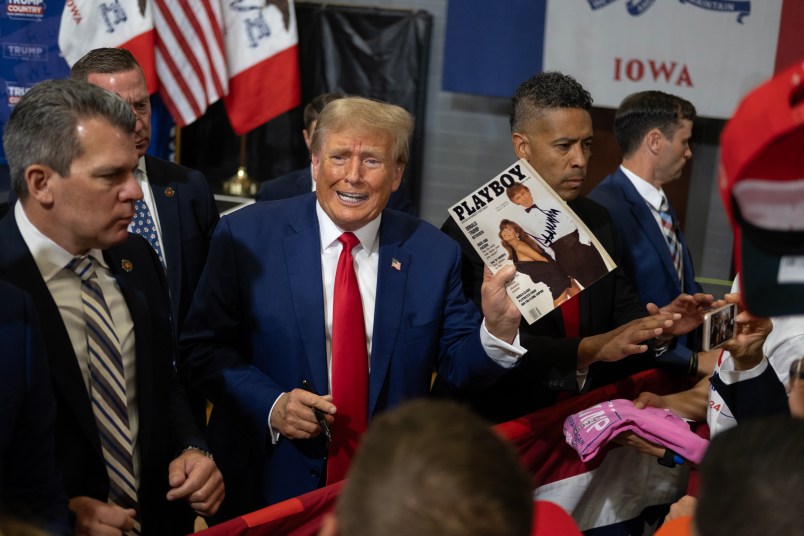As we can see, the New York State civil judgment against Donald Trump, totaling roughly $450 million, and Trump’s seeming inability to post a bond for the amount in order to appeal the judgment, is the real deal. But it has also reminded us, brought us back to the Russian nesting doll, the infinitely layered onion of Donald Trump not being real. The effort to collect the judgment spins us right back around to why there is a judgment in the first place. Trump is now fundraising off threats to “seize Trump Tower.” The New York Post is headlining the same basic idea. But as a friend reminded me yesterday evening, Trump doesn’t own Trump Tower.
I’m a bit embarrassed to admit I had to be reminded of this since I actually spent a decent amount of time during the Trump years teaching myself how Trump’s businesses work. But here we are. It would be deeply unfair if Letitia James seized Trump Tower. But Donald Trump doesn’t own it. Like, how unfair would that be to the people who actually own it who have nothing to do with Donald Trump?
At one level this is entirely obvious if you think about it. Trump Tower is owned by the people who own the apartment units. It’s not just apartment units of course. And … well, a lot of those are owned by foreigners trying to hide money in the U.S. But I digress. What he actually owns at Trump Tower is “the parking garage, the valet booth, room-service kitchens, lobby bathrooms, a restaurant space, and one unit.”
That’s his apartment, the size of which he dramatically exaggerated, plus a bunch of stuff of relatively minor value (compared to the notional value of the building) which probably anchors the service contract for the building but which is also probably next to impossible to untangle from the building. What I do remember is that Trump actually owns very few of his buildings. His basic model is that he goes to a city, lines up money to build the building (not infrequently from some utter shade-meister, especially when it’s overseas), essentially licenses his name to operation, builds it and then gets what amounts to an ongoing residual in the form of some kind of servicing contract tied to the structure. You sell the units to a mix of people who are wowed by the Trump name and others from Russia and Saudi who want to park their money through a blind LLC. And basically everyone’s happy. But a lot of the flashy stuff can’t be seized because it’s not his.
Obviously that’s not fraud. That’s just his being in the licensing business rather than a real estate guy. And there’s no real secret to that. Where it probably becomes more meaningful is that what he does own is by design deeply intertwined with the real stuff that other people own and in a way that is probably at least some level of headache to untangle. Think of it as the ownership stake equivalent of the latent chicken pox virus those of us over 40 still have in our bodies or maybe the cold sore virus most people have deep, deep, deep in the nerve tissue in the facial muscles around their mouth: almost infinitesimally small, generally of negligible importance unless you have a flare up but also all but impossible to uproot and get rid of.
One way or another it’s not where the money is. So as David notes, James isn’t focused on Trump Tower. She’s filing papers to seize a Trump golf course and one of his private estates in Westchester. Of course, this doesn’t get into the issue of Trump’s pervasive fraudulent over-valuation of all his assets as loan collateral that got him into this mess in the first place.
The stuff he actually owns owns is the stuff James is going after — golf courses, big houses, stuff like that. He has a few days before his 30 day grace period ends and she can start taking stuff.
I’m really not sure how this plays out.




